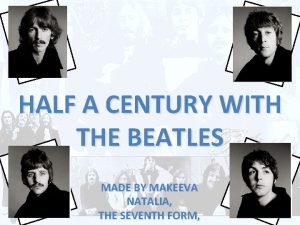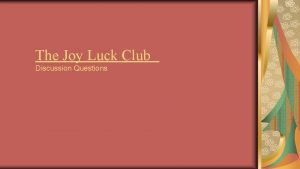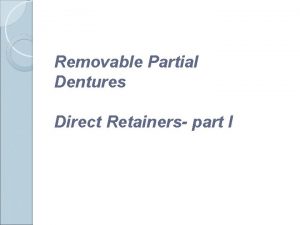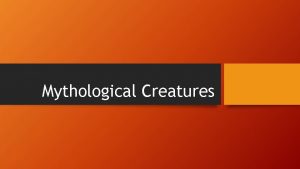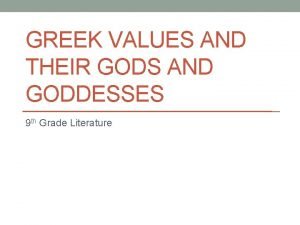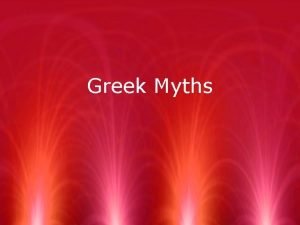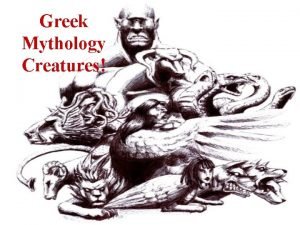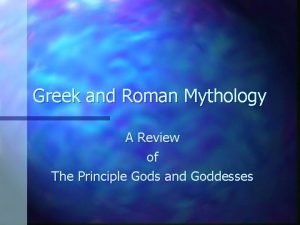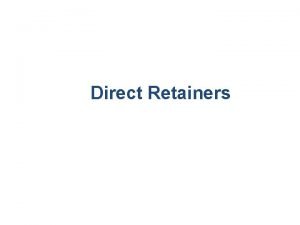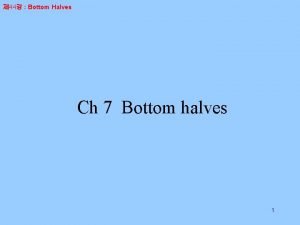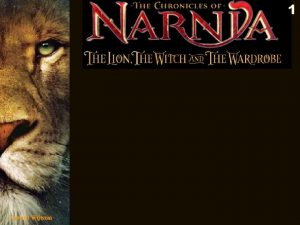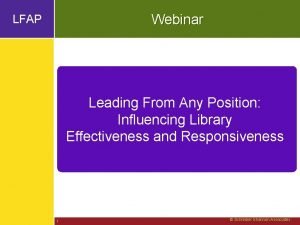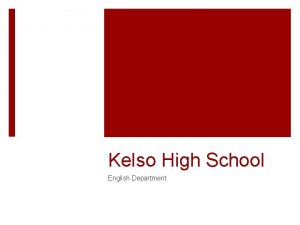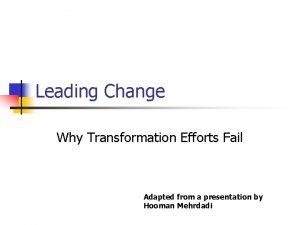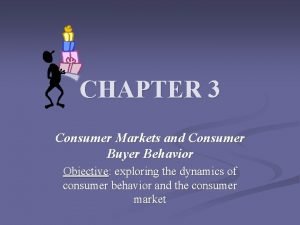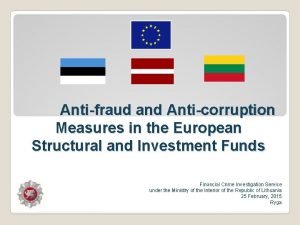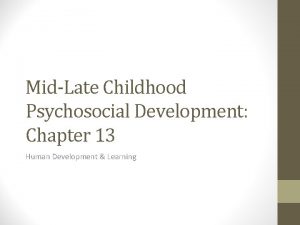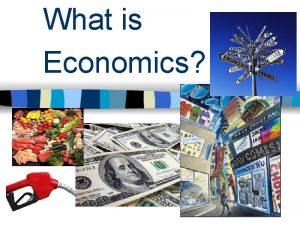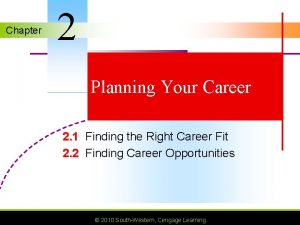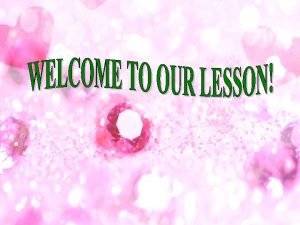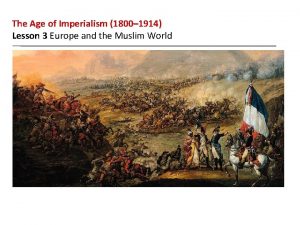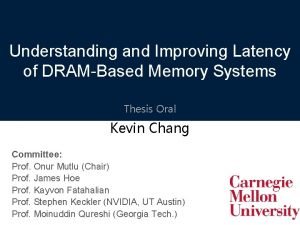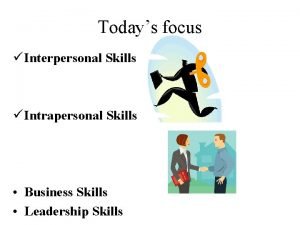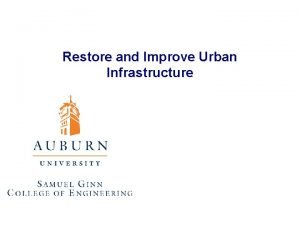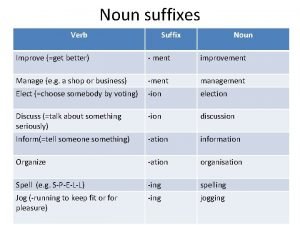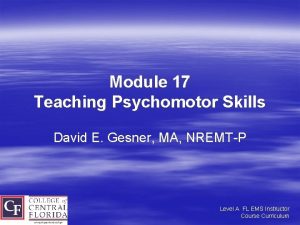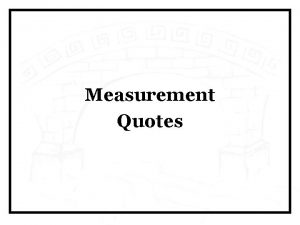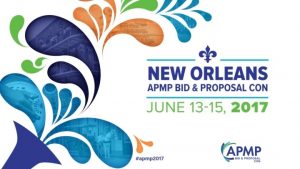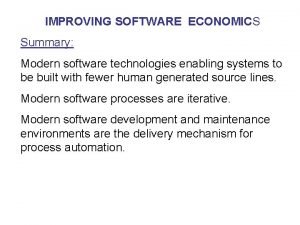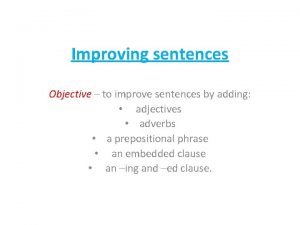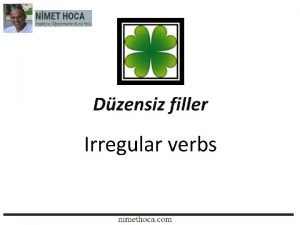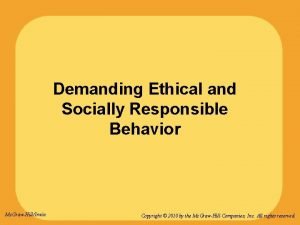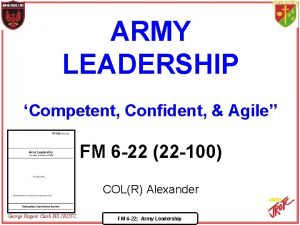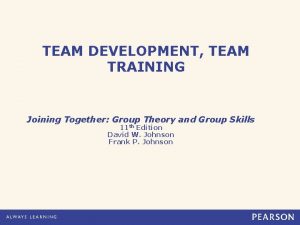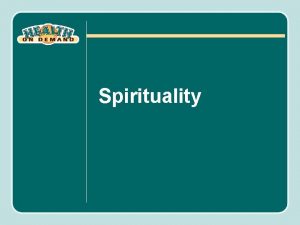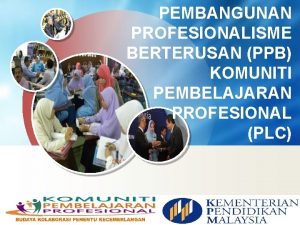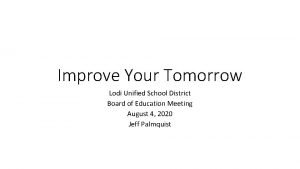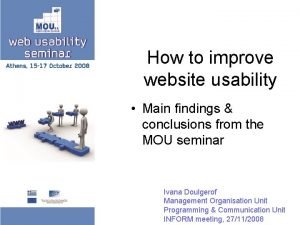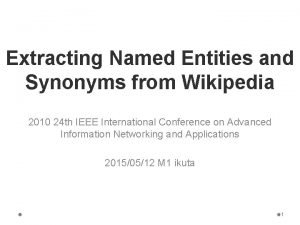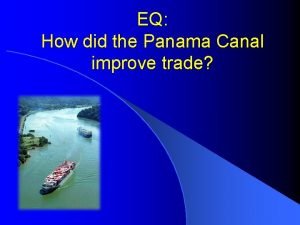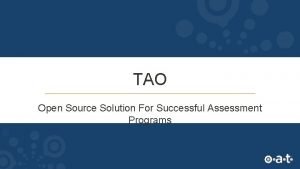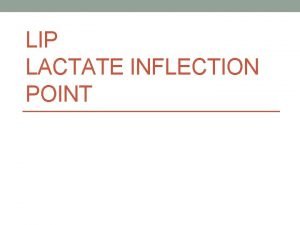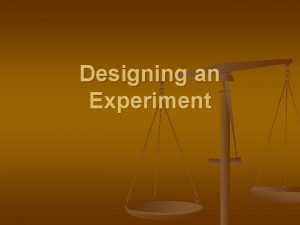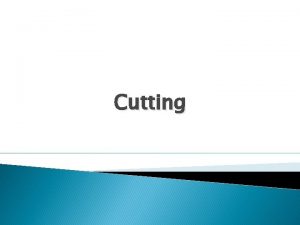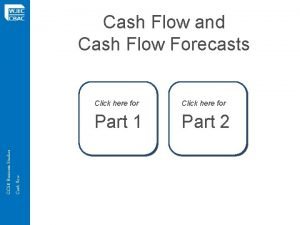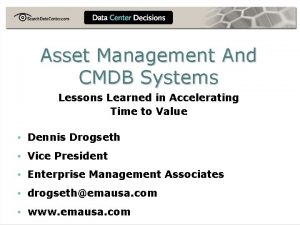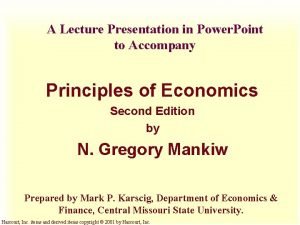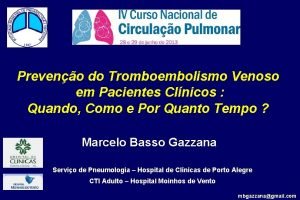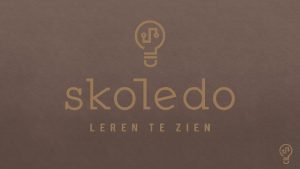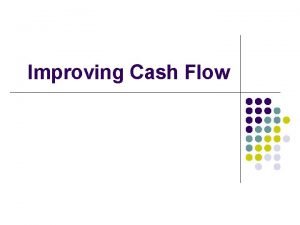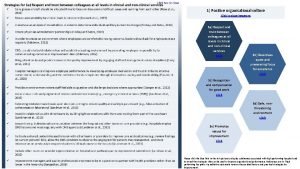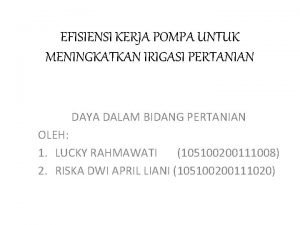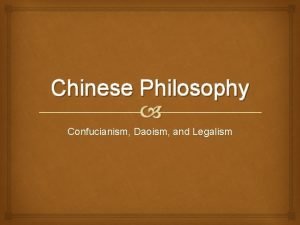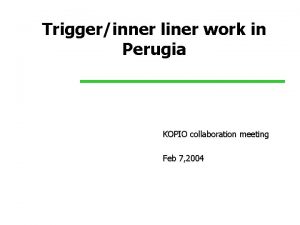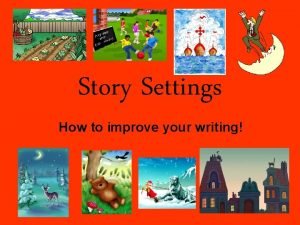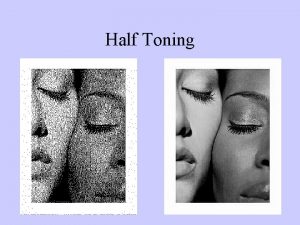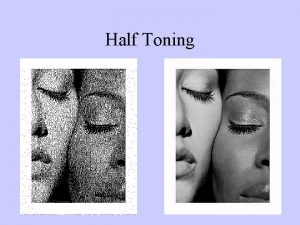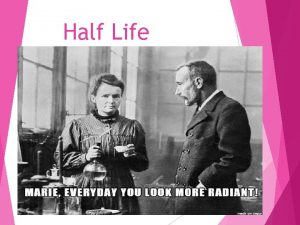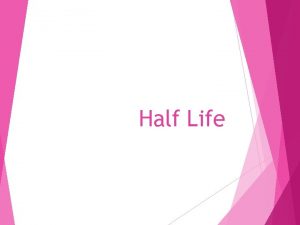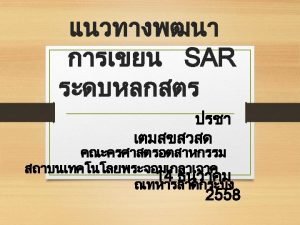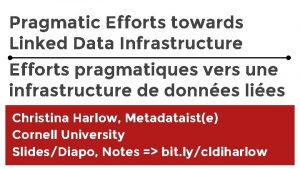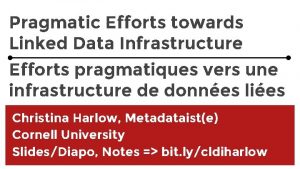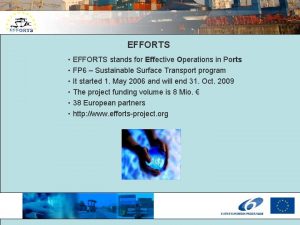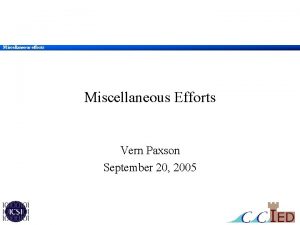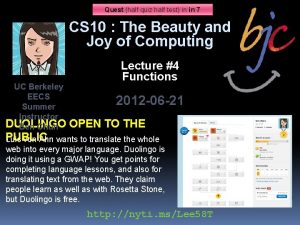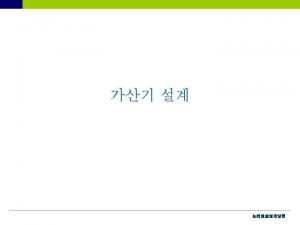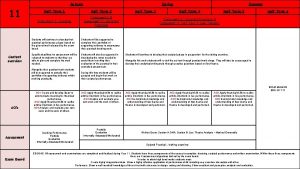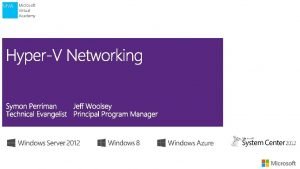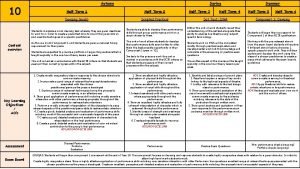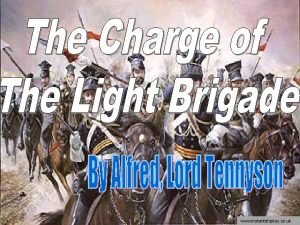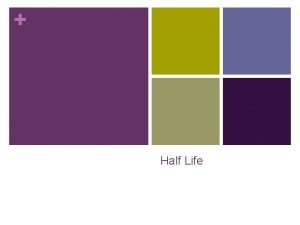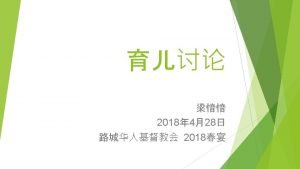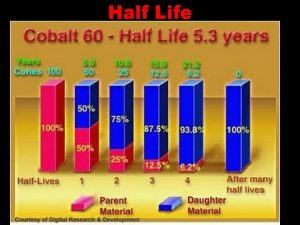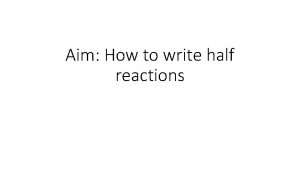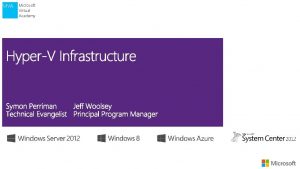A Half Century of Efforts to Improve Education


































































- Slides: 66

A Half - Century of Efforts to Improve Education Joseph D. Novak Cornell University and the Institute for Human and Machine Cognition jnovak@ihmc. us University of Urbino May 12, 2006

On our 53 rd wedding anniversary, July 2003

Graduate studies in education and biology 1952 -57 Teaching and research assistant in the Botany Department University of Minnesota

Can Education be more like science? Guided by principles Based on valid theory Evolving constructively

Changes in Epistemology 1950’s Positivism and Logical Positivism are Dominant 1960’ to 1980’s Constructivism and Realist philosophies emerge

Theory of Knowledge: All knowledge is constructed by human beings. The process is influenced by idiosyncratic differences and the cultural milieu.

Changes in Psychology 1950’s -- Behavioral Psychology is dominant, especially in USA 1963 -- Ausubel’s Psychology of Meaningful Learning published 1980’s Cognitive psychology moves to dominance

David Ausubel (1968): If I had to reduce all of educational psychology to just one principle I would say this: The most important single factor influencing learning is what the learner already knows. Ascertain this and teach him accordingly. * * Epigraph, Educational Psychology: A cognitive view

Learning may vary from highly rote to highly meaningful

A Theory of Knowledge Concept: A perceived regularity in events or objects, or records of events or objects, designated by a label

A Theory of Knowledge Proposition: Two or more concepts combined to form a statement about something: a unit of meaning

My first effort to present a Theory of Education, 1977

Instructional Technology 1950’s - Movies, overhead projectors, slide projectors, microprojectors 1960’s - Audio-tutorial instruction developed 1980’s Computer assisted instruction begins to emerge

Postlethwait’s Audio-tutorial Learning Center

Sam Postlethwait - Botanist and Educator

Published by Burgess, 1964, 1972

Audio-tutorial carrel units in introductory physics at Cornell

Audio-tutorial lesson on plant growth with 6 -year old

Audio-tutorial lesson on energy transformation

Audio-tutorial lesson on particulate nature of matter

Rowell interviewing a 6 -year old child

A Theory of Knowledge All knowledge is built up from Concepts and Propositions

A Theory of Knowledge Concept Maps: A tool to represent the structure of knowledge. A tool to facilitate Learning.

Concept Maps: A tool developed by our research group in 1972 to represent the knowledge of students prior to and after instruction.

Concept Map about Concept Maps

New Theory of Learning Key idea: Each person must construct her/his own meanings for concepts and propositions from experiences over time, building her/his knowledge structure

A graduate student interviewing a 12 th grade student

Concept map for Paul drawn from an interview in grade two

Concept map for Paul drawn from an interview in grade twelve

Students instructed using Audio-tutorial methods at ages 6 to 8 had more valid concepts and fewer invalid concepts about the nature of matter and energy as they progressed through 12 grades in school.

Conclusions from our 12 -year study: 1. 6 -7 year old children can begin to learn basic science concepts. 2. Early meaningful learning facilitates later learning 3. Concept maps can be used to track changes in conceptual understanding over time. 4. Concept maps are a valid, robust tool to represent knowledge

Learning Denny, a six year old, is asked to draw a map that shows his understanding of 8 common concepts Concepts: Water Solid River Vapor Steam Ice Liquid Gas Evaporate Denny’s knowledge does not include a meaning for vapor

Learning Concepts: Water Solid River Vapor Steam Ice Liquid Gas Evaporate We can easily teach Denny the meaning of “vapor” and a new concept, “evaporate”, by showing how they relate to his current knowledge.


Published by SEI, Torino, 1989

IHMC in Pensacola Florida

Ken Ford, Director - IHMC Using computers to leverage human capabilities

Alberto Canas - Associate Director, IHMC Leader of the Cmap. Tools team

The IHMC Cmap. Tools team

Concept Map about Concept Maps

“Expert” concept maps can “scaffold” learning. Internet and other resources can be attached creating a knowledge model.

“Expert Skeleton” concept maps can be prepared to aid study

Sample of concept maps that might be built using the “skeleton”

Today it is possible to create a New Model for Education

Schema for a New Model for Education

A concept map can serve as the backbone for a Growing “knowledge portfolio”

Vygotsky’s Zone of Proximal Development (ZPD) must be considered to optimize meaningful learning. Large Video clip omitted in e/merge 2006 version of presentation

Proyecto Conectate children with hand drawn concept maps

Proyecto Conectate students in computer lab

Proyecto Conectate children’s map showing two resources attached

President Torrijos visiting Proyecto Conectate

Children’s concept map for local plants showing added resources

Conectate staff with Joan and Joe

Map made by three year old children in Costa Rica

A 4 -year old concept mapping relatives in Costa Rica

Dopo aver osservato bene e parlato tra di noi, abbiamo deciso di raggruppare le foglie così:

Mettiamo del cotone su alcuni piatti di plastica, poi su ciascun piatto distribuiamo semi di vario tipo: ceci, lenticchie e fagioli

Ora costruiamo una mappa



A concept map by Bowen showing Honda Strategic Plan

A concept map to show curriculum gaps in Lexington Schools


Published by Erickson, 2001

In Summary We need research studies with real learners in real schools and work settings using the New Model for Education

Grazie
 Half a century from 1964
Half a century from 1964 The joy luck club comprehension questions
The joy luck club comprehension questions Retainer partial denture
Retainer partial denture Mythological creature half man half horse
Mythological creature half man half horse What is a half horse half man called
What is a half horse half man called What is a myth
What is a myth Centaurs in norse mythology
Centaurs in norse mythology Half man half horse name
Half man half horse name Multiple aker clasp
Multiple aker clasp Top half bottom half
Top half bottom half Narnia half mens half geit
Narnia half mens half geit Half empty or half full
Half empty or half full Half playful half serious
Half playful half serious John kotter leading change why transformation efforts fail
John kotter leading change why transformation efforts fail How do consumers respond to various marketing efforts
How do consumers respond to various marketing efforts Anti-corruption efforts
Anti-corruption efforts Noun of advertise
Noun of advertise Industry versus inferiority
Industry versus inferiority What economics is
What economics is A(n) is a desired end toward which efforts are directed.
A(n) is a desired end toward which efforts are directed. Match the following endangered
Match the following endangered For which reason did persia attract foreign interest
For which reason did persia attract foreign interest How to improve marketing performance
How to improve marketing performance Improve memory latency
Improve memory latency Interpersonal skills business
Interpersonal skills business Ways to improve urban infrastructure
Ways to improve urban infrastructure Gearing investopedia
Gearing investopedia Noun suffixes
Noun suffixes Noun suffixes
Noun suffixes How to improve psychomotor skills
How to improve psychomotor skills You cannot improve what you cannot measure explain
You cannot improve what you cannot measure explain Kiss model keep improve start stop
Kiss model keep improve start stop Modern software technologies
Modern software technologies Improving sentences
Improving sentences Move 3 hali
Move 3 hali Www.reachoutworld.org/amc
Www.reachoutworld.org/amc How to improve current ratio
How to improve current ratio Fm 6 22
Fm 6 22 How did the hongwu emperor improve life for the peasants?
How did the hongwu emperor improve life for the peasants? Joining together as a team to improve the quality
Joining together as a team to improve the quality Terminal server load simulator
Terminal server load simulator What is the difference between spirituality and religion
What is the difference between spirituality and religion Fokus secara kolektif terhadap pembelajaran murid
Fokus secara kolektif terhadap pembelajaran murid How to monitor and improve workplace operations
How to monitor and improve workplace operations How to improve yourself spiritually
How to improve yourself spiritually Improve your tomorrow
Improve your tomorrow Improve website usability
Improve website usability Weak synoynm
Weak synoynm How did the panama canal help improve trade
How did the panama canal help improve trade Badminton serving cues
Badminton serving cues Listening and speaking lesson plan for intermediate
Listening and speaking lesson plan for intermediate Open source assessment platform
Open source assessment platform How to increase lactate inflection point
How to increase lactate inflection point Wckcs
Wckcs John needham experiment main idea
John needham experiment main idea Accurate cutting facilitates sewing and improve garment
Accurate cutting facilitates sewing and improve garment How to improve cash flow gcse business
How to improve cash flow gcse business Asset data to improve cmdbs and it systems
Asset data to improve cmdbs and it systems Government can sometimes improve market outcomes examples
Government can sometimes improve market outcomes examples Escala de wells
Escala de wells Lean dmaic
Lean dmaic Cash flow options
Cash flow options How to improve organisational performance
How to improve organisational performance Jenis jenis pompa
Jenis jenis pompa The universe is sacred you cannot improve it
The universe is sacred you cannot improve it Improve resolution of image online
Improve resolution of image online Settings of the story
Settings of the story
